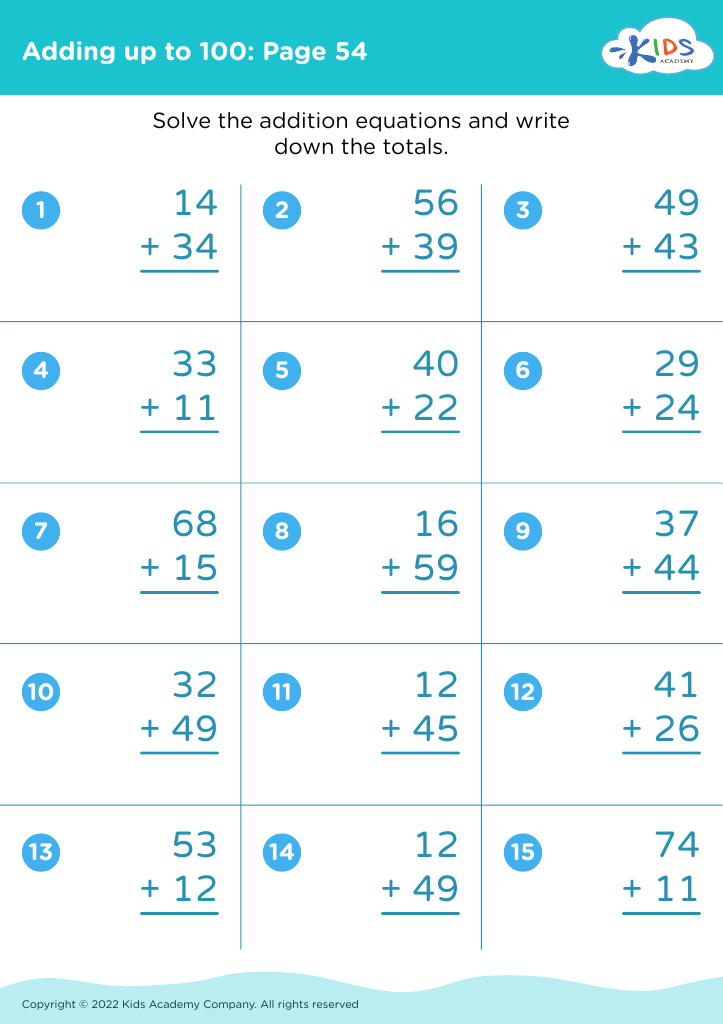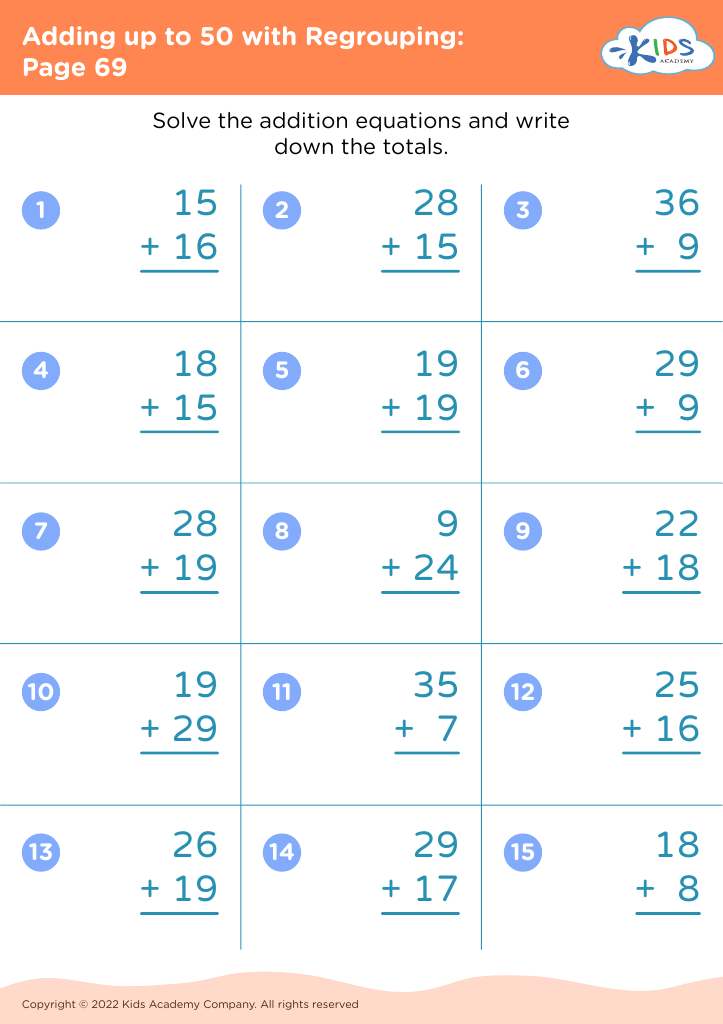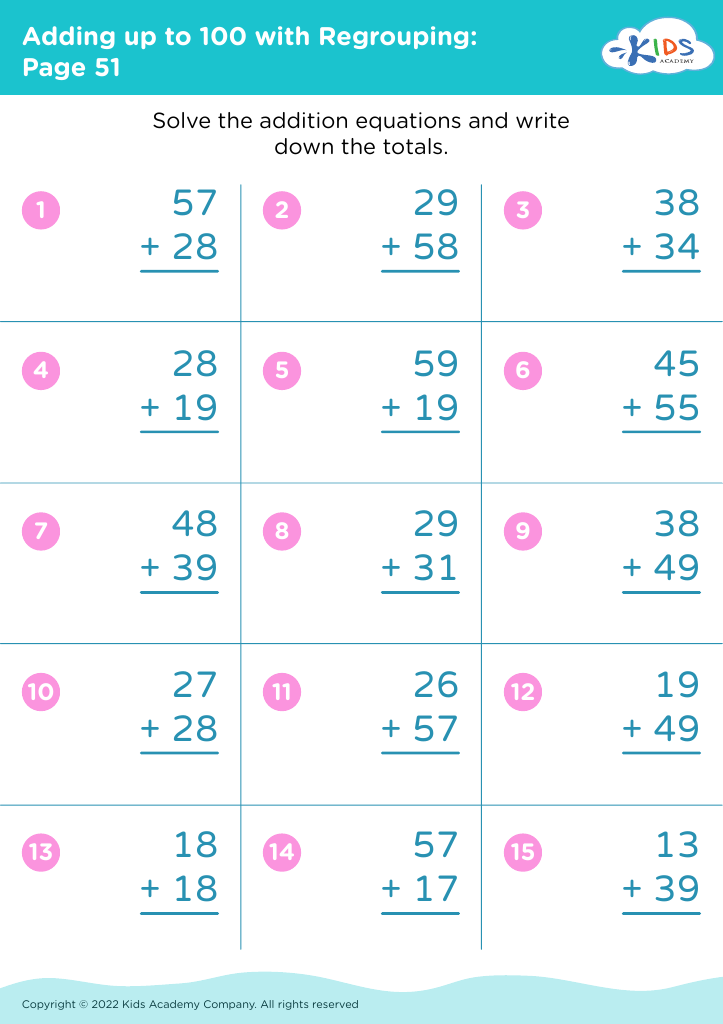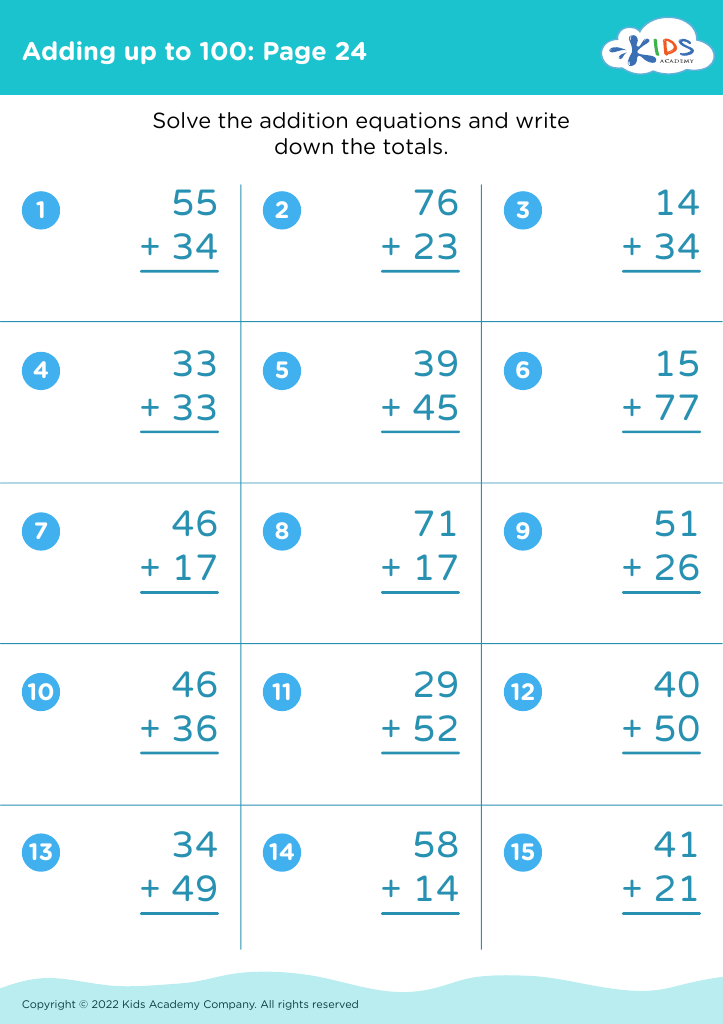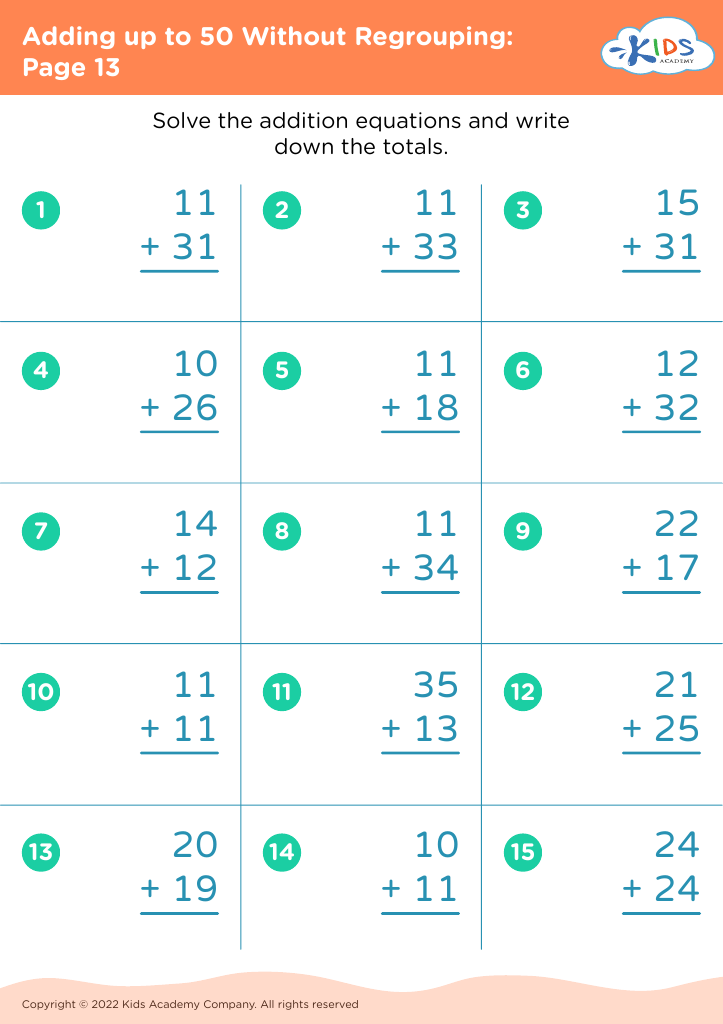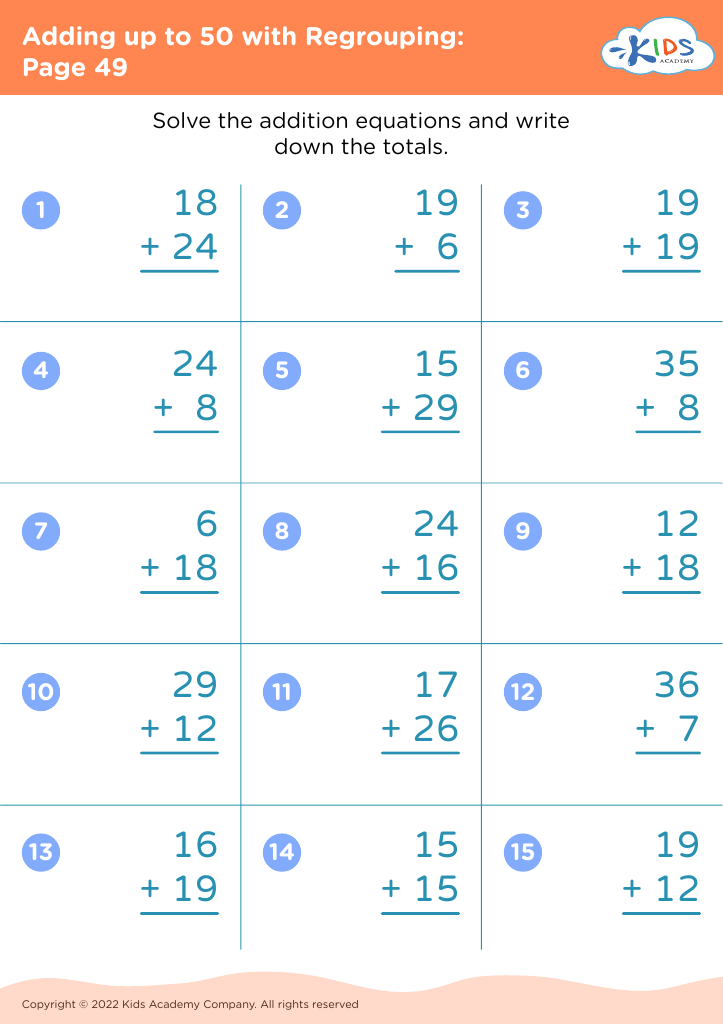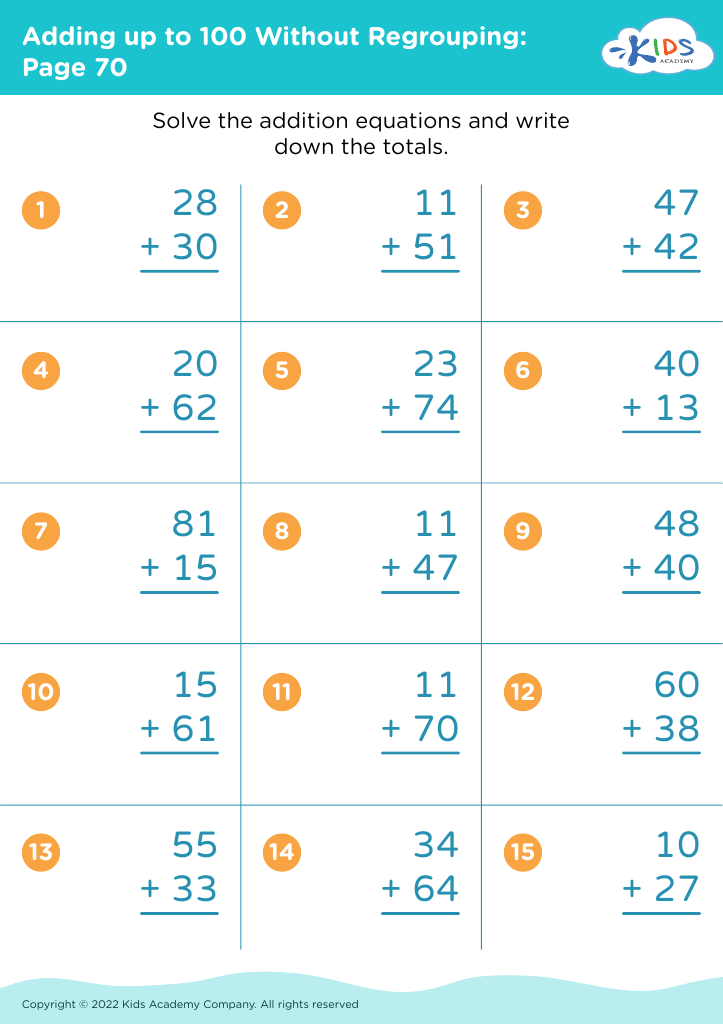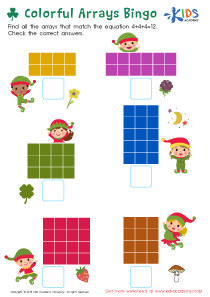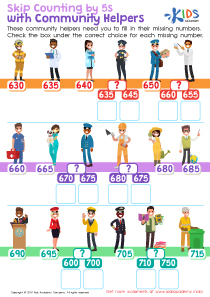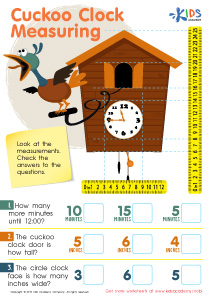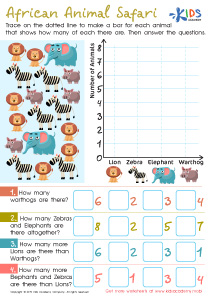Enhance counting skills Grade 2 Addition & Subtraction Worksheets
12 filtered results
-
From - To
Boost your second grader's counting skills with our engaging Addition and Subtraction worksheets! Designed specifically for Grade 2, these resources focus on helping young learners master fundamental math concepts through fun and interactive exercises. Each worksheet encourages problem-solving and critical thinking, providing a solid foundation for future math success. Children will enjoy visual aids and hands-on activities that make learning enjoyable and effective. With our carefully crafted worksheets, students will gain confidence in their counting abilities and enhance their overall mathematical understanding. Explore our collection today and set your child on the path to math mastery!
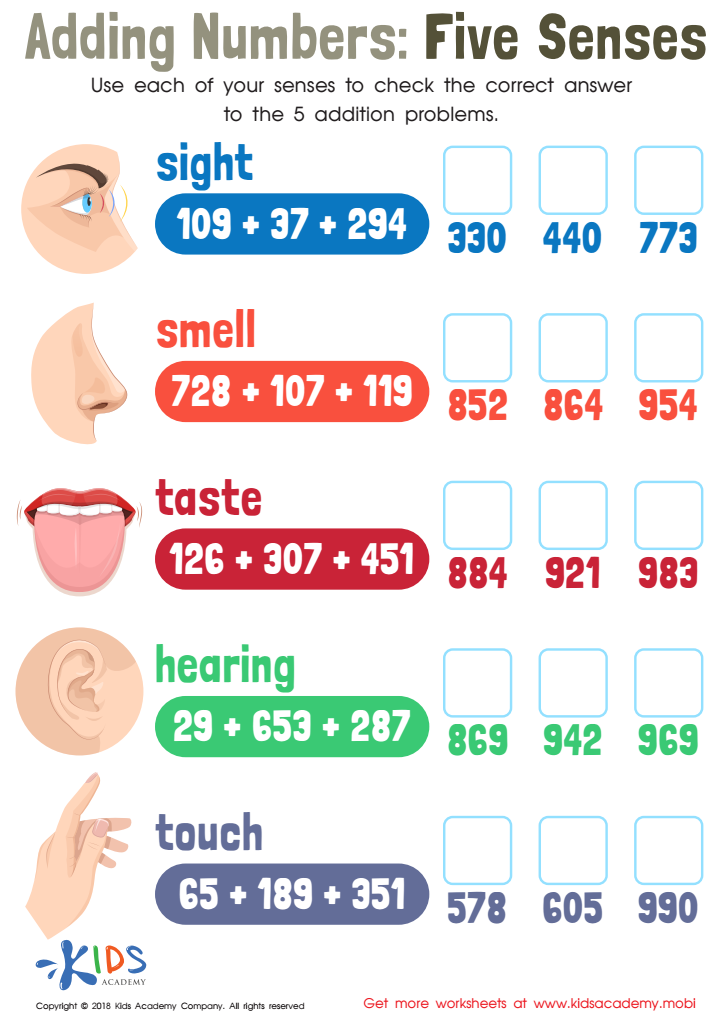

Adding Numbers: Five Senses Worksheet
Parents and teachers should prioritize enhancing counting skills in Grade 2 addition and subtraction because these foundational math concepts significantly impact children's academic and cognitive development. Mastery of counting and basic arithmetic is crucial for a child's overall mathematical competence, fostering confidence in problem-solving and analytical thinking.
At this stage, students transition from basic counting to understanding the relationships between numbers, which lays the groundwork for more advanced mathematical concepts. This understanding is vital not only for academic success in math but also for everyday activities, as these skills apply to shopping, budgeting, and even time management.
Moreover, strong counting skills can enhance children's ability to approximate, estimate, and reason about quantities, which is essential in real-life situations. By focusing on these skills in Grade 2, educators and parents can cultivate a positive attitude toward math, reducing anxiety and building resilience during future math challenges. Additionally, enhancing these skills creates a solid foundation for more complex operations like multiplication and division in later grades. Ultimately, supporting students in developing robust counting skills reinforces their confidence, competence, and enthusiasm for learning, creating lifelong learners and successful individuals.


 Assign to My Students
Assign to My Students
